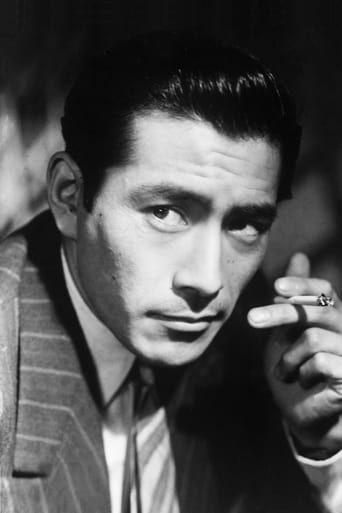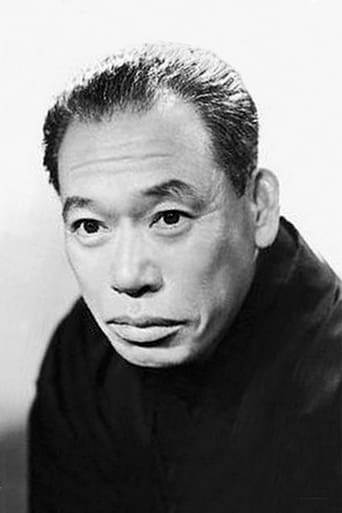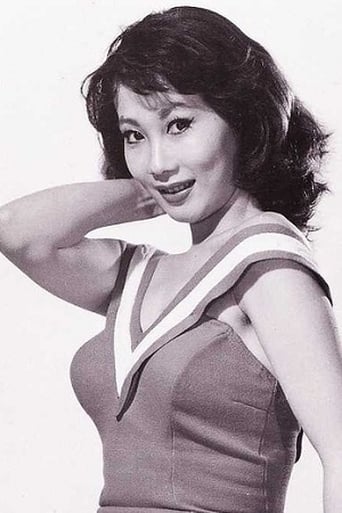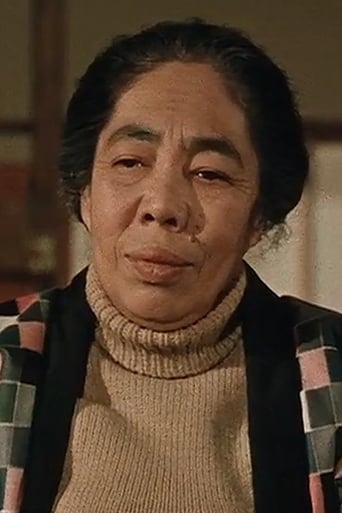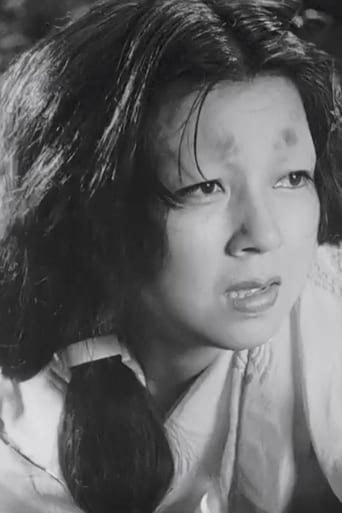Smartorhypo
Highly Overrated But Still Good
Odelecol
Pretty good movie overall. First half was nothing special but it got better as it went along.
AshUnow
This is a small, humorous movie in some ways, but it has a huge heart. What a nice experience.
Ezmae Chang
This is a small, humorous movie in some ways, but it has a huge heart. What a nice experience.
gavin6942
During a sweltering summer, a rookie homicide detective tries to track down his stolen Colt pistol. The film is considered a precursor to the contemporary police procedural and buddy cop film genres.Kurosawa mentioned in several interviews that his script was inspired by Jules Dassin's "The Naked City" and the works of Georges Simenon. Kurosawa wrote the script with Ryūzō Kikushima, a writer who had never written a script before. Indeed, it would be hard to deny the influence that film noir had on this film, as it is essentially that: film noir set in a post-war Tokyo.I have to wonder what influence this film had , if any, on the Nikkatsu studio. They made many great gangster films in the 1950s and 1960s, and while there is a distinction between "film noir" and "gangster", there is enough overlap that surely "Stray Dog" must have been something that was in the back of their minds.
Alex da Silva
Rookie detective Toshiro Mifune (Murakami) gets his gun pick-pocketed and embarks upon a journey to retrieve it. He starts out alone but eventually teams up with a wiser cop played by Takashi Shimura (Sato). All the while, his gun is being used in more and more deadly crimes and his sense of shame and dishonour drives him onwards to rectify the situation. The gun has seven bullets, and by the end of the film, all of them have been fired.Director Akira Kurosawa delivers a high quality effort in capturing a tense atmosphere and stifling Tokyo heat. The characters are entertaining and the dialogue realistic with some memorable scenes, eg, the chorus of girls dancing in the nightclub and then running backstage to relax - this is where we first encounter Keiko Awaji (Harumi Namaki), who has a significant role as the killer's girlfriend. We are led to believe that Mifune has many similarities with the killer Isao Kimura (Yusa) – they have just chosen different paths.I must mention the dialogue - one particular gem is the moment when a woman's emotional behaviour is very frankly put down to her being on her period. How true. Hollywood just wouldn't dare.The film draws you in from the start, although it's overall length could be shortened. There is one scene which is a montage of shots of Mifune wandering around the shady districts of Tokyo. Whilst the accompanying music to this is interesting, we get the point after a couple of minutes. There are a few sections like this where the director drags it out a little too long. A good film. No-one has mentioned this yet but is it significant that Mifune doesn't actually speak his dialogue - he barks it like a dog?
Kong Ho Meng
This would be probably my least favourite of all kurosawa films because I believed Kurosawa at that point still had a lot to learn on how to make a really good detective drama -- though it is understandably about a rookie detective who has no clear idea of how to conduct his job properly (chasing after an armed criminal without backup is one example), I cannot accept that even with the whole experienced police force around there is such a lack of seriousness and professionalism in their conduct, also the logic of Takashi's deduction methods was totally unexplainable.There is also a severe lack of focus on the villain ...but this is forgivable as the film is made from the detectives' point of view and the subject matter of the film is actually the rookie himself. Mifune's dummy acting is probably the weakest one I have seen so far. However the strength of this film lies not in the characters nor plot, but it is the setting that has nothing to do with the story. I found myself more fascinated by the music and the environment in the background, especially during certain prolonged scenes of 'investigation'...which gave some idea of a real life post-war japan. It ended up looking more like a documentary in the end, and didn't work for me.Domo gomenasai, kurosawa-sama!
Patryk Czekaj
It has always amazed me that Akira Kurosawa managed to adapt to any kind of genre with such incredible ease, every time attracting the attention of the whole world. As one might have expected, it's also happened in the case of Stray Dog. Although the picture is greatly influenced by the western noir genre and it looks but that way, it clearly possess this mesmerizing Japanese touch, making it even more astounding and provoking than many classic American crime pictures. It's a great detective story with a lot of sudden twists and turns in the thrilling story. What's fascinating about Stray Dog is the fact that it starts with such a seemingly trivial matter like a stolen gun, but proceeds to develop a mostly riveting intrigue filled with unnecessary murder and deep obsession.The storyline closely follows Detective Murakami (Toshiro Mifune) who – along with Detective Sato (Takashi Shimura) – embarks on a dangerous journey in order to find his precious Colt. With every discovery the story becomes more complicated and sombre. One dead body leads to another. As the film gradually changes its tone and intensifies the pace, it also creates a mightily mystic and overwhelmingly suspenseful atmosphere. When the mood alternates, the murky cinematography begins to uncover a darker side of the picture. It's fascinating how – through slow movement and ubiquitous sweat trickling down the characters' bodies – Kurosawa pictured the tremendous heat that permeates every scene. What's more, through the contradiction of two differing viewpoints – that of a young cop and that of an older cop – the film alternates between two contrasting perceptions of the events and doesn't clarify which one of them is valid.This is yet another amazing collaboration between Kurosawa and Toshiro Mifune. Every picture they filmed together turned out to be a huge hit, and Stray Dog only confirms the trend. Mifune plays an emotional and inexperienced detective who is at first more concerned about his beloved gun than about other people's lives. On the opposite side there is Takashi Shimura, who gives a marvelous performance as Murakami's likable and enormously calm acquaintance Sato, who tends to rely on his intuition and not on his feelings. And as the two characters bond, Sato tries to teach his companion the old-fashioned yet perfectly plausible rule – don't sympathize with the suspects, as you might become too weak and unable to fulfill your duties as a policeman.Through this thrilling tale of mystery and murder Kurosawa was also able to show his personal view on the tough situation in post-war Japan. It's his auteur take on the struggling middle class, its members, and the crimes that those people have to commit in order to make ends meet. All the brutality, inhumanity and deception presented in this movie are caused mainly by the inequality in Japanese society. Apart from creating a visually stunning masterpiece and a truly compelling detective story, Kurosawa also skillfully persuaded the audience that behind most violent acts hides a purpose, even when it all seems like the work of a titular stray dog. Still, ironically so, those terrifying creatures have to suppress their urges as well, but with every subsequent act of violence their hunger and anger rise to the level of murder. And that's definitely too hard for the protagonists too grasp.



